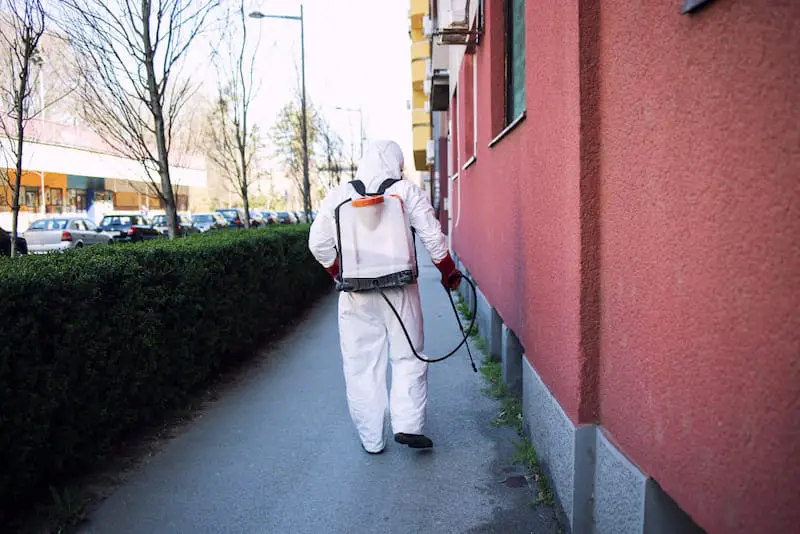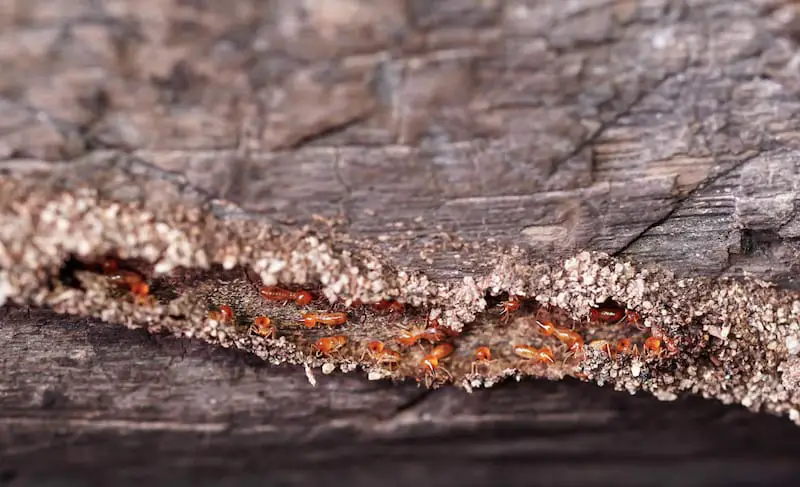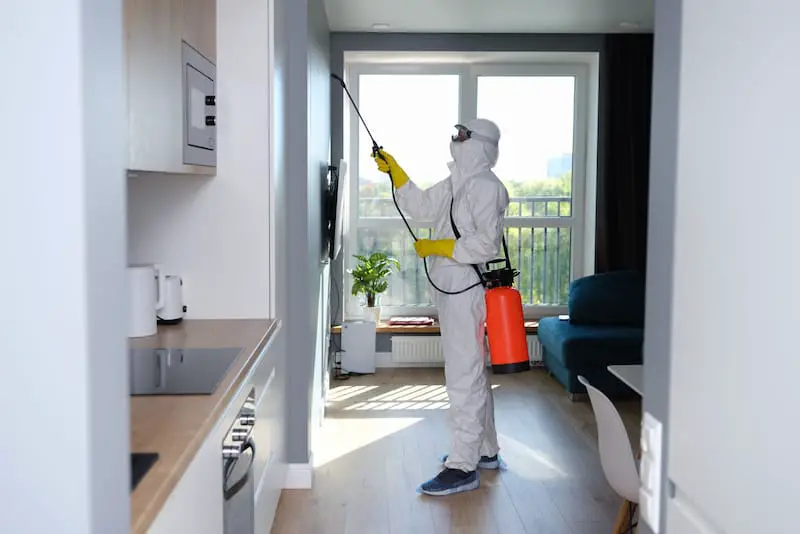Getting a termite bond can have pros and cons for any house. The pros include getting guaranteed yearly checks, covering damage, and a faster house re-sale. Cons could feel that bond is expensive with paying annual fees, so it feels like a waste of money if you don’t get termites, or it doesn’t cover all termite species. Deciding if a termite bond is worth it or not greatly depends on how big your house is and if you live in a city with a high infestation rate. But the damages of repairing an infested home are always more significant than the infestation treatment itself. If you live in a risky area, it’s worth getting a bond, but make sure you read the terms and conditions to see if they suit your situation.
Termites are those pesky little creatures that can end up eating your entire house without you knowing about it for a long time.
These pests are a homeowner’s worst nightmare because once they infest your home can end up causing you thousands of dollars worth of damage.
While getting treatment is the only option to save your house from further damage, is there any way you can avoid getting it in the first place? A termite bond is one way to ensure it.
While these bonds remain a sure way to handle the termite problem, is it actually worth it?
Does putting hundreds of dollars each year worth making sure you don’t get infested? If yes, then what are the pros, and if no, then what are the cons? Let’s take a look!
What’s a termite bond?
If you’re unfamiliar with what a termite bond is and what it entails, let’s briefly talk about it before trying to get into the pros and cons of it.
It’s an agreement to warranty termite prevention treatment by a home builder, an individual, or an organization. They’re responsible for termite control in structures such as houses, apartments, or complexes.
According to a termite contract, the company will come to inspect, do the necessary treatment, and cover the damages, if any. But for any of that to happen, they charge you annually with an initial deposit into the bond.
The pros of a termite bond
1. Guarantee check

With a termite bond, the most beneficial thing to come out is that you don’t have to worry about termites hiding in your home.
With the annual or quarterly termite inspection, a date fixed by the company with which you have a bond will come and check for infestation.
With an annual inspection, you get peace of mind and don’t need to watch for these pests constantly.
2. No need to pay extra
After paying the yearly or quarterly installments into the bond, you don’t need to pay for any termite treatments. The termite damage and treatment cost are mostly included in your bond.

You must check the agreement thoroughly and what repairs and damages the bonds cover. Not all homes are qualified for a repair bond, so it’s right to check before signing anything.
If you get normal termite extermination done, it’s costlier than getting a bond and could fall anywhere between $1300 to $2,500.
It depends on the type of treatment you’re getting done and the size of your house.
And that’s only the tip of the iceberg. If the termites have caused a lot of damage, you would need reconstruction of the damaged parts and areas, which could end up causing you thousands of dollars.
3. Helps you sell your home faster
With a termite bond, you don’t need to contact a company and get a termite letter to show the prospective buyer that your house is pest free.
All you need is to show them how you’ve maintained your home remain pest-free with a termite bond over the years.
Get a transferable bond; if you wish, you can transfer it to the house’s next owner.
The cons of a termite bond

1. Expensive
The number one reason people hesitate to indulge in a termite bond is that it seems expensive to them.
The average initial cost of getting a bond lies between $700 to $1000, and the cost differs depending on your house’s size and location.
But what irks people is they need to pay around $200 per year to maintain the bond, and the cost differs depending on various factors.
If you don’t ever get an infestation, it feels like you’re putting money down the drain, and some people don’t like putting money each year in these bonds, only to never benefit from them.
2. Doesn’t cover all the species
So you get a termite bond thinking it would help you in the future. But not all termite bonds cover all species of termite.
The three types of termites common in the U.S.:
- The native subterranean termite
- The drywood termite
- The Formosan termite, a species of subterranean termite.
While they all live in different areas, some more common in a few cities than others, they have unique characteristics. But they have one thing in common: chewing through the wood undetected.
You should look closely at the species of termites that are popular in your area and if your bond covers them. Only then is it worth investing in it.
3. Never getting termites
It’s not mainly a con if you don’t get infested. But it might feel like a con when you’re paying an early fee, only never to get an infestation. Most people feel like they’re not getting their money’s worth.
Is a termite bond worth it?
It all depends on person to person, the area they’re living in, and how good they’re at protecting their house from these pests.
A termite bond is essential if you’ve had termite issues before and can help prevent them from happening again. In addition, this can prevent you from facing a lot of damage.
Getting a bond in advance if you’re considering selling your house is also a good idea because it is a plus feature for future owners.
You can always transfer the bond to the prospective owners.
Another factor that can help you decide to get a termite bond is to see if the city you’re living in is mainly affected by termites or not. If your city gets infested with these little suckers, it’s best to invest in a bond to prevent getting bit by extensive damage.
What are the most termite-infested cities in the U.S.?

Even thinking about it might make your skin crawl, but there’s a reason you might want to think about a termite bond.
According to the National Pest Management Association, termites cause more than $5 billion in property damage annually.
While no one can predict a termite infestation, you can find out if it’s a popular thing in your city or not.
There are parts of the U.S. where the termite issue is more common than in other regions. Getting a termite bond is essential in these places to prevent paying loads of dollars in damage.
Here are the top 20 cities you need to look out for before deciding to get a termite bond:
- Miami, Florida
- Los Angeles, California
- Tampa, Florida
- Washington, DC
- Atlanta, Georgia
- West Palm Beach, Florida
- NYC, New York
- New Orleans, Louisiana
- Orlando, Florida
- Dallas, Texas
- San Francisco, California
- San Diego, California
- Raleigh, North Carolina
- Houston, Texas
- Baltimore, Maryland
- Phoenix, Arizona
- Philadelphia, Pennsylvania
- Charlotte, North Carolina
- Indianapolis, Indiana
- Greenville, Tennessee
FAQs
How do I know if there are termites in my home?
The weirdest thing about termites is that they can get into your home and eat up half of the structure, and you won’t even know about it. So you have to be really observant and get to know if there’re signs of these pests in your house.
So here are some warning signs to watch out for:
– You could see some sawdust-like powder that would appear near the infestation.
– If you see the bubble-like texture on the walls or floors and they’re soft to the touch, that could be another sign.
– Look out for the foundation of your house for structural damage and see if they’re brown or grey vertical lines that look similar to mud tubes.
– If you see tiny white wings, this would mean a bigger problem, for this is a sign that termites have found a new colony in the home, as they shed their wings and burrow into wood.
How can I prevent termite infestation?
While you can’t completely stop termites from entering your house, there’re ways to ensure you can prevent the infestation.
There’re a few things you can do:
– Make sure to keep water away from the foundation of the house
– Make proper use of mulch
– Don’t store firewood in small spaces or against foundations, as they’re the easiest target for infestation.
– Eliminate wood in contact with the ground
– Reduce moisture and humidity in small spaces
– Get your home professionally treated with a termiticide
Do termites come back after treatment?
Once you get termite treatment, it stays away for a few years, and some even give a termite warranty.
But they could always return unexpectantly. You can never know with termites, and it’s best to watch out for any evidence of termites.
People also get termite bonds in areas with a high possibility of termite infestation to be on the safer side.
To summarise
There’re various pros and cons when getting a termite bond for your house. It ultimately depends on your situation and the size of your home. There’re cities where termite infestation is a bigger problem.
You should decide if getting a bond will be best for your situation or not. For example, if you’re living in a big house in an area prone to this infestation, it’s best to be on the safer side and get this bond.
Also, consider the terms and conditions and what the bond covers before signing anything. Finally, choose a pest control company carefully.


